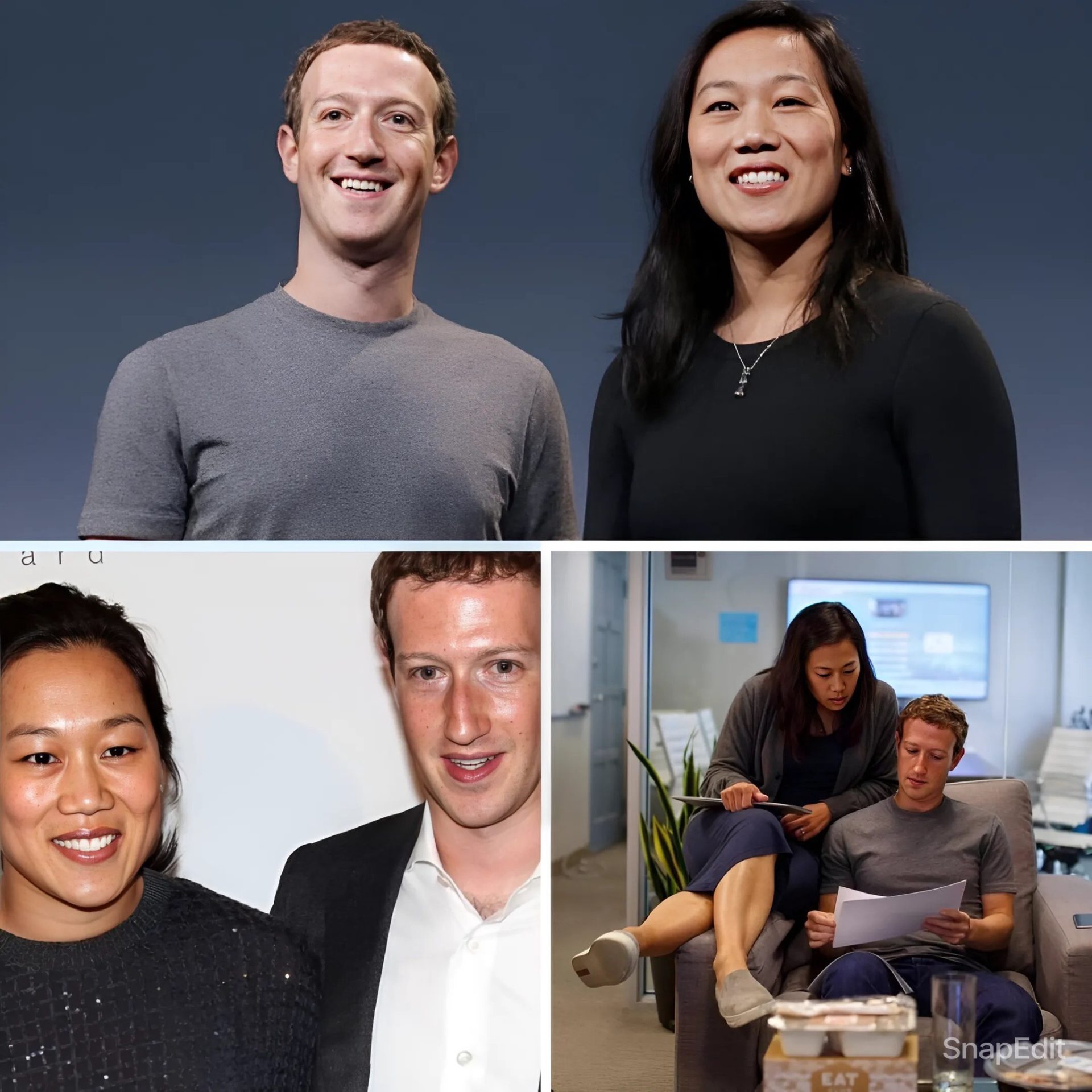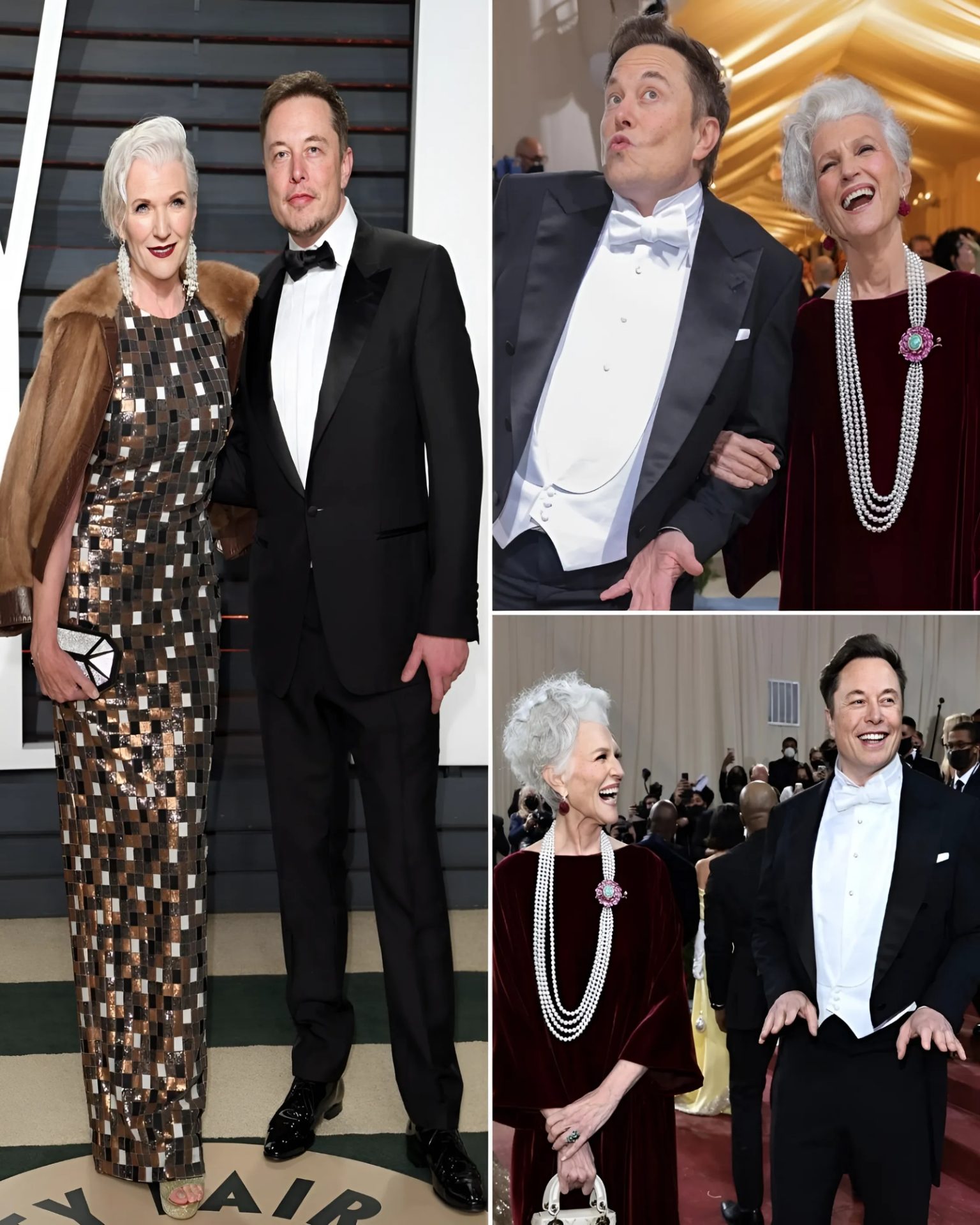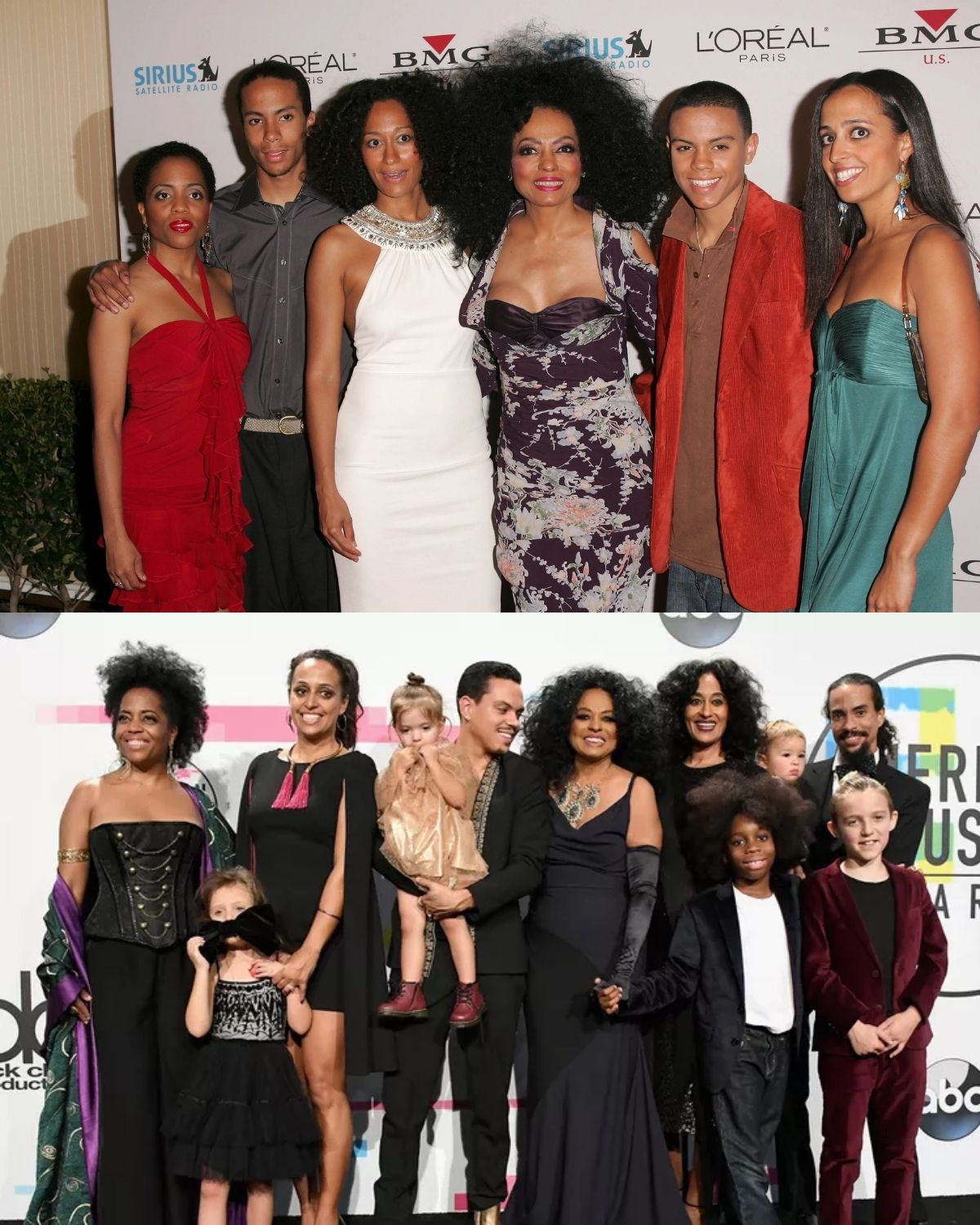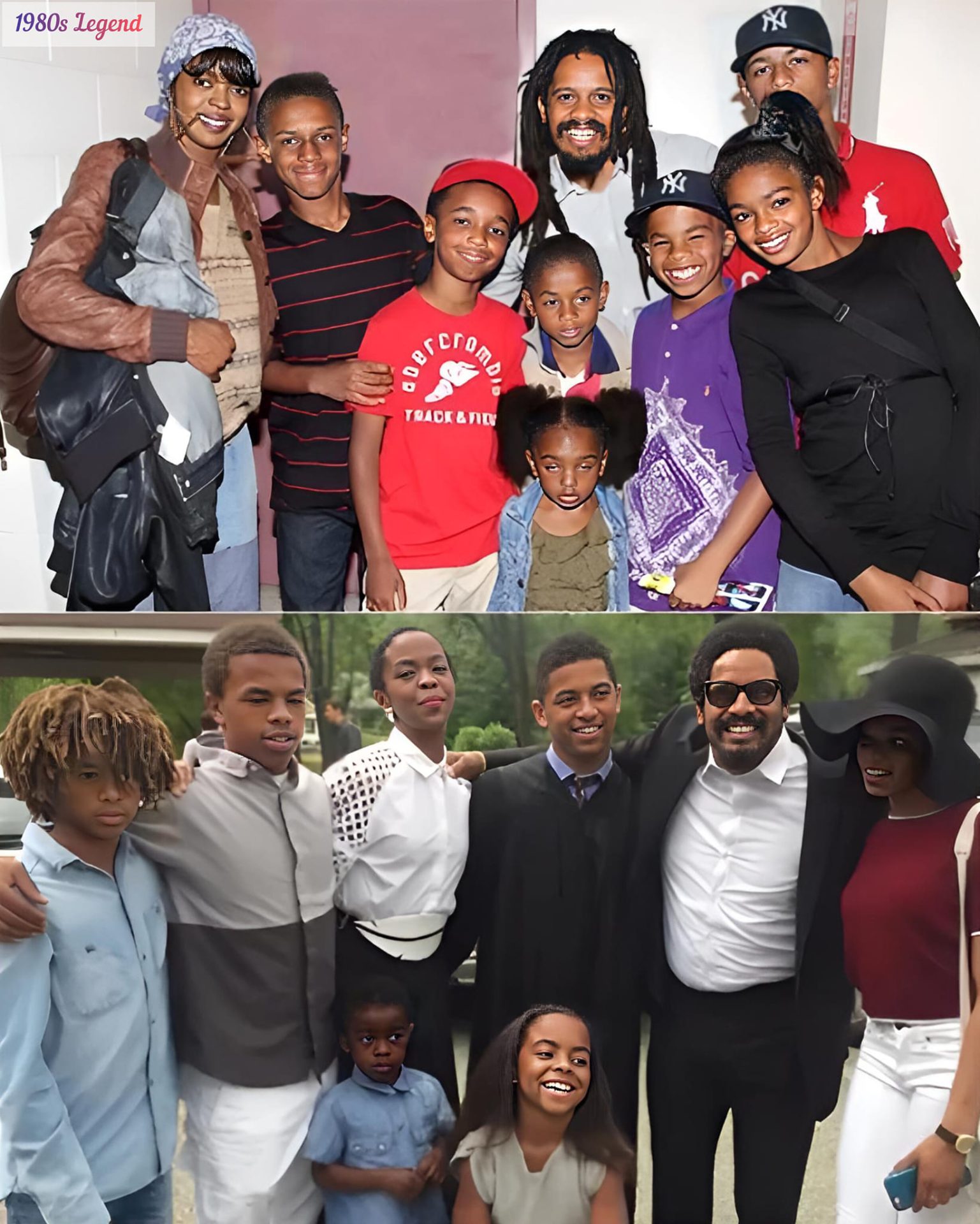Her confirmation comes as the newly expanded conservative majority moves to give states more control.
WASHINGTON — Ketanji Brown Jackson took the judicial oath just after noon on Thursday, becoming the first Black woman to serve on the Supreme Court.
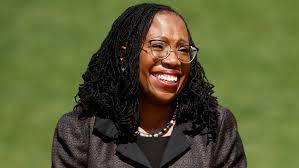
Justice Jackson, 51, was confirmed in April, when the Senate voted 53 to 47 on her nomination. She is replacing Justice Stephen G. Breyer, 83, who stepped down with the conclusion of the court’s current term.
Justice Jackson took both a constitutional oath, administered by Chief Justice John G. Roberts Jr., and a judicial oath, administered by Justice Breyer, making her the nation’s 116th justice and sixth woman to serve on the nation’s highest court. The brief swearing-in ceremony took place in the West Conference Room at the Supreme Court, before a small gathering of Judge Jackson’s family, including her two daughters. Her husband, Dr. Patrick G. Jackson, held the two Bibles on which she swore: a family Bible and a King James Version that is the property of the court.
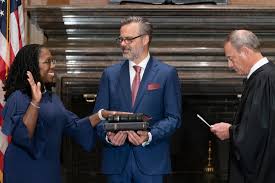
“I’m pleased to welcome Justice Jackson to the court and to our common calling,” Chief Justice Roberts said and shook her hand. He added that there would be a formal investiture in the fall, but the oaths would “allow her to undertake her duties, and she’s been anxious to get to them without any further delay.”
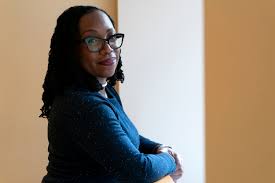
Justice Jackson made no statement.
Her rise to the court will not change its ideological balance — the newly expanded conservative wing will retain its 6-to-3 majority.
She joins at a time of sharp polarization about the court, especially in the wake of its ruling striking down Roe v. Wade and ending the constitutional right to abortion, and in the wake of rulings in which the court has shown its deep skepticism of the power of administrative agencies to address major issues facing the country.
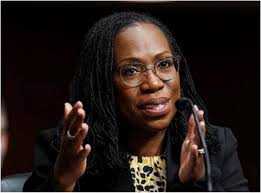
Minutes after Justice Jackson’s swearing-in, anti-abortion protesters staging a peaceful sit-in were arrested outside the Supreme Court.
The Biden administration and Justice Jackson have underscored the historic import of her elevation to the nation’s highest court.
“It has taken 232 years and 115 prior appointments for a Black woman to be selected to serve on the Supreme Court of the United States,” Justice Jackson said in April at a White House celebration following her confirmation. “But we’ve made it. We’ve made it. All of us.”

“In the wake of such far-right extremism poisoning our nation’s highest court, she will bring a voice — and a vote — of compassion, respect for human rights, and honor for the rule of law,” Derrick Johnson, president of the N.A.A.C.P., said in a statement. He said that her swearing-in was “the greatest news for Black America coming out of this Supreme Court in a long, long time.”
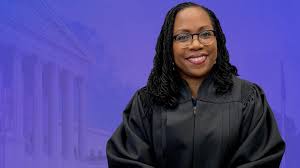
Justice Jackson encountered deep resistance among Republicans on Capitol Hill to her nomination and her confirmation hearings devolved into a bitterly partisan debate where Republicans on the Senate judiciary panel attacked her as a liberal partisan with a questionable record.
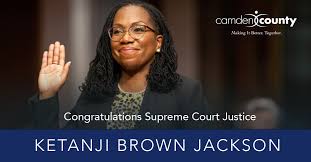
Republicans tried to disqualify Justice Jackson with accusations of leniency toward 𝘤𝘩𝘪𝘭𝘥 𝓈ℯ𝓍ual abusers and divisive questions designed to ignite culture war debates, including how she would define the word “woman.”
Senators Mitt Romney of Utah, Lisa Murkowski of Alaska and Susan Collins of Maine ultimately voted for her nomination in defiance of their party, giving President Biden a small sliver of the bipartisan support he had hoped to garner for his nominee.

On Thursday, Justice Jackson swore a judicial oath to “administer justice without respect to persons, and do equal right to the poor and to the rich, and that I will faithfully and impartially discharge and perform all the duties incumbent upon me” under the Constitution and laws of the United States.
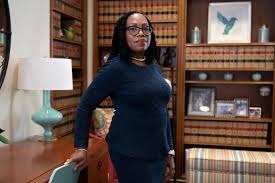
Justice Jackson was 𝐛𝐨𝐫𝐧 in Washington, D.C., and grew up in Miami. She graduated from Harvard College and Harvard Law School, Justice Breyer’s alma mater, and clerked for him during the 1999-2000 Supreme Court term.
After her confirmation, Justice Jackson admitted she was daunted by the idea of being a role model to so many, but said she was ready for the task. Paraphrasing from Maya Angelou’s poem “Still I Rise,” she said: “I do so now while bringing the gifts my ancestors gave. I am the dream and the hope of the slave.”
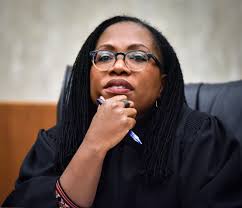
Because of her background as a federal public defender and a stint on the United States Sentencing Commission, she is expected to bring particular knowledge of criminal law and sentencing legal policy to the court.


